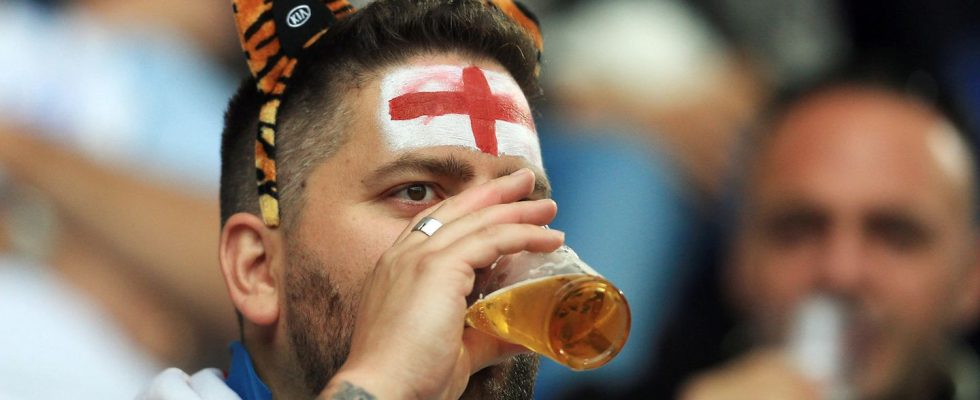Before the European Football Championship
British Foreign Office warns against strong beer in Germany
Bottom up! But beware of the strong German beer at the European Football Championship, dear Brits!
© Matt West / Shutterstock / Imago Images
In the summer it will be decided in Germany who will be the European football champion. Fans come from all over the continent. However, the British authorities are warning their citizens about the German national drink.
Be careful with alcohol! When the European Football Championship kicks off in June, there will be thousands, if not hundreds of thousands of fans from all over Europe Germany come to cheer on their national teams in the stadiums or at public viewings – quite a few of them certainly with a beer in their hand.
But that’s exactly what the British Foreign Office is warning UK citizens about if they travel to Germany for Euro 2024. “Beer can be stronger than in the UK, so drink responsibly, know your limits and respect local laws,” the ministry writes on its homepage, where it has compiled travel advice for the European Championship. Anyone who drank too much could be denied entry to the stadium.
Useful tips for the European Football Championship
According to the “Bierentdecker” portal, the alcohol content of beer is on average between 4.8 and 5.4 percent – but there are also beers with a higher percentage by volume. British beer and lager, on the other hand, has a low alcohol content: an average of 4.6 percent, according to the organization Drinkaware. But there are stronger beers there too.
The Foreign Office in London has other useful tips for football fans from the island: For example, that you should only buy tickets for the games from official providers and that these are electronic. That’s why it’s important to have a sufficiently charged smartphone. You should also take good care of your passport and valuables – like in any other country.
And: You should be aware of local cultural sensitivities and their effects.
Sources: UK Foreign Office, “The Times”, “Beer Explorer”, Drinkaware

